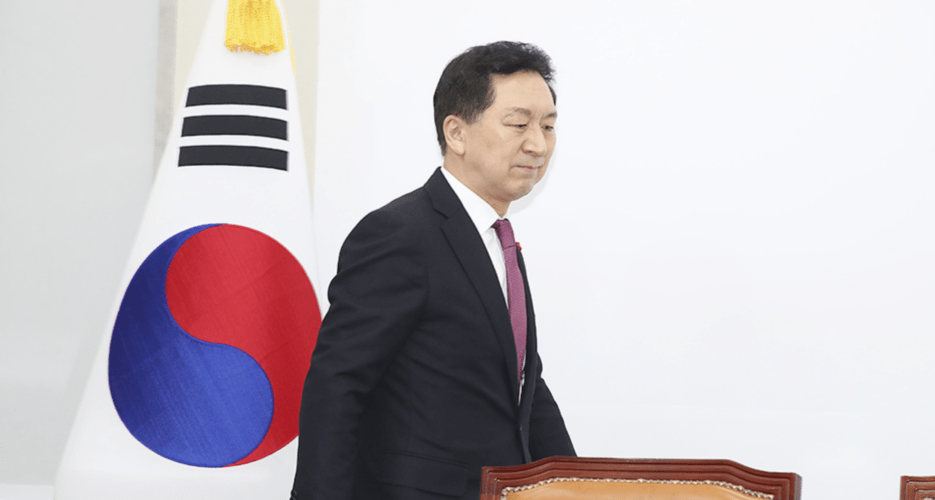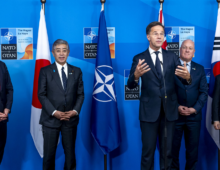Resignation of PPP leader just months before general elections stirs concerns over the party’s electoral viability
South Korea’s ruling People Power Party (PPP) leader Kim Gi-hyeon announced his resignation on Wednesday, just nine months into his tenure. In a Facebook post, Kim cited his inability to fulfill the “heavy sense of duty” he felt toward reforming the party and contributing to the Yoon administration’s success. He expressed regret for stepping down without achieving these goals, acknowledging the urgency of the PPP’s success in April’s parliamentary election and the challenges the Yoon Suk-yeol government faces.
Kim stated his resignation was a personal decision to prevent further division within the party. He emphasized the need for unity and inclusivity among party members and pledged to support the party. Kim also expressed his commitment to prevent the main opposition Democratic Party (DP) from retaining its parliamentary majority, urging rapid stabilization under the leadership of PPP floor leader Yun Jae-ok.
South Korea’s ruling People Power Party (PPP) leader Kim Gi-hyeon announced his resignation on Wednesday, just nine months into his tenure. In a Facebook post, Kim cited his inability to fulfill the “heavy sense of duty” he felt toward reforming the party and contributing to the Yoon administration’s success. He expressed regret for stepping down without achieving these goals, acknowledging the urgency of the PPP’s success in April’s parliamentary election and the challenges the Yoon Suk-yeol government faces.
Kim stated his resignation was a personal decision to prevent further division within the party. He emphasized the need for unity and inclusivity among party members and pledged to support the party. Kim also expressed his commitment to prevent the main opposition Democratic Party (DP) from retaining its parliamentary majority, urging rapid stabilization under the leadership of PPP floor leader Yun Jae-ok.
Get your
KoreaPro
subscription today!
Unlock article access by becoming a KOREA PRO member today!
Unlock your access
to all our features.
Standard Annual plan includes:
-
Receive full archive access, full suite of newsletter products
-
Month in Review via email and the KOREA PRO website
-
Exclusive invites and priority access to member events
-
One year of access to NK News and NK News podcast
There are three plans available:
Lite, Standard and
Premium.
Explore which would be
the best one for you.
Explore membership options
© Korea Risk Group. All rights reserved.
No part of this content may be reproduced, distributed, or used for
commercial purposes without prior written permission from Korea Risk
Group.












